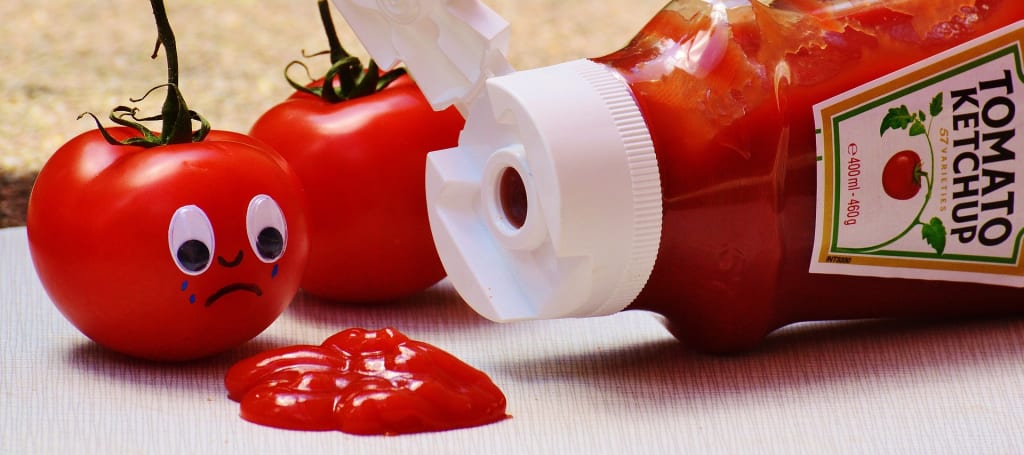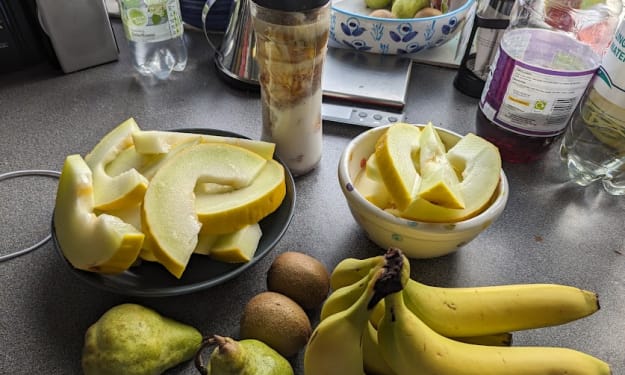Why I Became a Vegetarian
My story and the ethics of Vegetarianism

It all started thanks to Joaquin Phoenix’s Oscar speech, you know, the one about cows milk. Not that I hadn’t heard these ideas from other sources. But it was his passion and conviction that made me realize something: I didn’t want to eat animals anymore. My decision didn’t officially come about until I had a flashback to when I was a kid, and I connected with an elephant at the zoo. I made eye contact with her, and she started swinging her trunk around. I could’ve sworn she smiled at me that day. I recalled that warm fuzzy memory when I asked myself the inevitable question: Why am I eating creatures that I can connect with on such deep levels? I would never eat my family dog or fry up the goldfish for dinner. So why is it okay to eat a cow or a chicken? In about 10 seconds, I answered this question by deciding to try out vegetarianism. The best way for me to live out this newfound logic was to stop eating any animals at all.
With the absence of meat in my life, I began to think about vegetarianism, and it’s moral complications. I had to confront these complexities in the best way possible, writing this blog post. In my early drafts, I narrowed it down to two very morally equal ideas. Those ideas being, while it may seem wrong to eat animals, who are sentient beings like us, there is also another aspect of a moral dilemma: Our evolutionary history.
Humans are meant to consume meat. We’ve evolved over past millennia to hunt and kill for food, therefore making us omnivores. Because we also eat vegetables and fruits, among other nonsentient beings that grow on earth.
So which is it? Are we biologically designed to consume animals? Or do we have a moral obligation only to eat nonsentient beings?
A TALE OF TWO ARGUMENTS
Based on science, it’s clearly not wrong to eat other animals. It’s the food chain, the circle of life. I don’t hold it against anyone who eats meat. It’s an evolutionary desire. It would be like me telling you not to have sex or raise children. That shit would be weird. Because science also tells us meat is really good for us. It provides us protein and healthy fats we need to maintain strong muscles and healthy skin. And let’s face it, most of us really really enjoy it. I mean, why would they even invent veggie burgers if so many vegetarians didn’t like cheeseburgers? They’re delicious and for a good reason. If you want to know the reason, just reread this paragraph.
If you didn’t decide to reread the previous paragraph, then I will now explain the counterargument against everything I just said. One that, like the first argument, also uses science for its validity. The argument begins with a simple question: If we evolved to eat animals, can’t we evolve not to eat them? It’s certainly possible to do this.
Sure the endeavor would take thousands of years, at least, with everyone gradually leaving behind animal meat in favor of less cruel veggies, fruits, and grains; thus ending our mass slaughter of innocent sentient life for all time. Sounds nice. Personally, I wouldn’t say I like taking the life of other sentient beings. It’s a beautiful world where at least humans won’t be killing other animals. The question is, why would we do that? If we’re meant to hunt and gather, why take out the former? Perhaps since now, we are so advanced as a species, it is now our obligation to find a solution that will better our world. If we can save our fellow earthling’s lives, then aren’t we liable for their deaths? Or unnecessary deaths I should add. Following this logic leads us to conclude that killing and eating animals in the future is morally wrong.
So which is it? How do we determine what’s right or wrong? The ultimate conclusion is what we consider to be progressive. How will we evolve? Which direction will we go? The problem is each individual will have their idea of what is progressive for us as a species. I do believe in the future, mainly for environmental reasons, we’ll probably stop eating meat. But until then, we’re going to have to decide as humans how we should treat animals.
CONCLUSION
The problem I’ve had in writing this article is that I can’t come to a staunch moral conclusion, given that my judgment is more of a personal conviction from an encounter with an elephant than a philosophical solution. So my answer to the way too many questions I’ve asked so far isn’t an argument, but a messy realistic truth. We each have to listen to our mind and decide what is best for you and I as individuals; allowing us to see where precisely our take us. Therefore, there isn’t a right or wrong answer in this situation. The “right” is whatever you see as right. Thinking like this will give us all peace, even when discussing cow’s milk. Maybe one day, we’ll realize the apostrophe in “cow’s milk” doesn’t just make it theirs grammatically.
About the Creator
Landon Girod
Hi I'm Landon Girod. I've had two books not make the New York Times bestseller list. And most of articles and short stories have yet to win any awards.






Comments
There are no comments for this story
Be the first to respond and start the conversation.